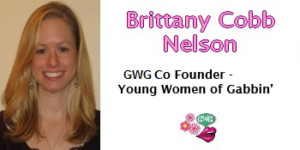19 Mar How to Land a Great Job or Internship: Writing Cover Letters by Brittany Nelson
This is the third blog in a series called How to Land a Great Job or Internship. For more information on how to organize your resume, please click here {insert hyperlink to prior blog}. The second step to increase your chances of landing a great job is to write a fantastic cover letter.
A cover letter should never be more than one page in length. A good cover letter will demonstrate your knowledge of the organization, express interest in the position, and describe your experience without just reiterating your resume.
Format
In today’s age of technology, we email cover letters instead of using snail mail. This does not mean that your cover letter should be formatted like an email it still needs to look like a letter!
Start with your name, address, and email on the left. Underneath that, add the name and address of the person who is receiving the letter. Below that is the date and then the salutation. If possible, do not address the letter with To Whom It May Concern. Take the time to find out the name of the recruiter or HR Director and personalize your letter.
Below is an example of correct formatting:
Your Name
Street Address
City, State
Email Address (not hyperlinked!)
Recruiter Name
Organization Name
Street Address
City, State
Date (you can also put this on the upper right across from your name)
Dear Mr./Ms. :
Body paragraphs
Sincerely,
Your Name
Cover Letter Paragraphs
I like the four-paragraph cover letter model. This ensures that your cover letter is concise and typically not more than one page. You might want to say a lot in your cover letter but remember that recruiters are busy. Highlight the most important points (i.e., what it is that makes you unique/special/most qualified) and save the rest for your interview!
Four Paragraph Model:
- Your first paragraph should be highly customized to demonstrate knowledge of and interest in the organization. This helps set you apart and shows that you are not sending a generic cover letter for every job. It can be great to mention something about their mission statement/purpose and then state your interest in [insert job name here]. This lets your prospective employer know that you did some homework about your future company. Just like you wouldn’t buy a house or car (or similar big-ticket item) without doing some checking first, you should invest your time to learn as much as you can about the company and the position in advance.
- The second paragraph should describe your experience as it relates to the opening. It’s great to have a personal reason about why this job interests you. You can discuss examples or related experience/coursework that demonstrates interest and the right experience.
- The third paragraph details remaining work/education experience. It is great to use phrases from the actual job description in conjunction with your skill sets since that is what they are trying to find.
- The final paragraph restates interest and thanks the reader for their time and consideration.
The two middle paragraphs are flexible and should demonstrate why you would be a strong candidate for the position. If you write long paragraphs, you can break them up, but make sure that your cover letter stays on one page.
Please do not forget to have someone edit your cover letter! It is easy to miss spelling errors or weird phrasing when you’ve read your cover letter a hundred times. Once you are confident that your resume and cover letter are your best work, you can apply for the job!
Brittany Nelson is the co-founder of GWG. After many years of volunteering in international ministry, she became excited about helping other young women discover their passion. Brittany is a Jr. HR Generalist at a consulting firm in the DC area. She spends her free time exploring DC and going to Washington Wizards games with her husband, Paul.



Sorry, the comment form is closed at this time.